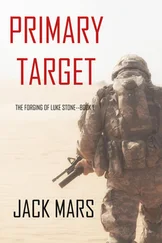Kurt looked at a man in military dress greens sitting at the conference table. He was thin and sinewy, square-jawed, with a gray flattop haircut. His hand was raised just slightly. Luke recognized him instantly.
“General?” Kurt said.
“Frank Loomis with Joint Special Operations Command,” the man said. “You’re not out on a limb. Without divulging too much, it’s safe to say we have people on the ground in Egypt, Libya, Saudi Arabia, and Iraq. Our early intelligence suggests that this was an attack by Wilayat Sinai, probably with an assist from out-of-towners. Maybe Al-Qaeda, maybe ISIS. Furthermore, we’re showing that…”
Kurt held up a big hand in a STOP gesture. Heavy hitters visited here a lot, and they were accustomed to running things. But they tended to find out that this was Kurt Kimball’s domain. He called the tune and you danced to it.
“Okay, General. Let’s take this one step at a time, and get everyone here on the same page. It’ll make life easier down the road.”
The general grunted, possibly in agreement, possibly in frustration.
“Amy, bring up the Sinai Peninsula, please.”
On screens all over the room, maps of the Sinai Peninsula appeared, sandwiched between the vast landscape of Egypt proper to the west, the Mediterranean Sea to the north, Israel to the northeast and the sliver of the Red Sea directly to the east. Luke knew the terrain well.
“The Sinai Peninsula is the upside-down triangle you see here. Nominally part of Egypt, it’s been a political football throughout human history. From 1968 until 1980, it was occupied by the Israelis in the aftermath of the Six Day War. Border tunnels are routinely discovered between the north of the peninsula and the Gaza Strip, suggesting steady movement of fighters and materials between those two places.
“The local population are nomadic Bedouins, Sunni Muslims, elements of whom have become increasingly radicalized in recent years, particularly as Red Sea tourism in the south and east has grown.”
A middle-aged woman in a business suit raised a hand. “Do you suppose this is because beach resorts bring Western culture, like alcohol, dancing, and women in bikinis?”
Kurt shrugged. “I’m sure that offends some sensibilities. And I believe that is probably the reason Marshall Dennis seems to have been targeted specifically. His resorts have a reputation for a certain brand of hedonism, and his magazines are known for salacious celebrity gossip and scantily clad young models.”
“Marshall Dennis was a pig,” the woman said.
A few people laughed. Luke rolled his eyes. It might be a little early in the morning to climb up on a soapbox. Anyway, the man was dead.
“People have strong opinions about Sir Dennis,” Kurt said. “But no matter his faults, to be clear, an element of this is economic as well. The Bedouins have been pushed off ancestral lands to make way for new development, and a class of well-paid Egyptian and international workers have been flying in to work at the resorts, causing an infrastructure building boom and driving up the prices of nearly everything. This is far from the first terrorist attack in that region.”
He glanced at his aide. “Amy, can we see the list?”
On the screens, a typed list appeared. There was very little graphic design. Each entry had a title in bold, and a brief description underneath. The list began to scroll down, giving a sense of its length – perhaps thirty or forty entries, all of them attacks.
“We won’t do this exhaustively,” Kurt said. “You can all see how many incidents there have been. We’ll just jump in here and there. December 2013 – an attack on an Egyptian police compound killed sixteen recruits. March 2014 – multiple cross-border rocket attacks on Eliat, Israel, activated the Israeli Iron Dome defense system. All but one rocket was intercepted, ten people were injured, and there was one death from a heart attack. February 2015 – a bus was bombed along the Red Sea coast, killing three Korean tourists and the Egyptian driver. A message afterwards warned all tourists to leave Egypt.”
Kurt sighed. “And of course, the big one. Metrojet flight 9268 exploded on October 31, 2015, soon after departing Sharm El Sheikh. The flight was full of Russian tourists, and two hundred twenty-four people died, which was everyone on board.”
He paused. “In part, the opening of a new Dennis Hotel was a demonstration by the Egyptian government that they had finally subdued the Wilayat Sinai, and the Red Sea resorts were open for business again.”
“I guess that theory is out the window,” someone said.
“At the risk of sounding ignorant,” Susan said, “who are these people, this… Wilayat?”
Kurt nodded. “Of course. Wilayat Sinai, or ISIS in the Sinai Peninsula, are the group formerly known as Ansar Bait al-Maqdis, or in English, the Supporters of the Holy House. Ansar was a loosely organized group of Salafist terrorist cells carrying out attacks in the region from the early 2000s. Since 2011, the Egyptian government has taken aggressive steps to eradicate those cells. In response, Ansar has affiliated itself with ISIS, making a formal oath of allegiance in 2014. We have widely corroborated intelligence that as ISIS loses the territory it once controlled in Iraq and Syria, it sees the lawless tribal lands – mainly open desert and mountains – of the Sinai as an attractive possible base of operations.”
General Loomis interrupted. “Of course they do. Which I think brings me to my original point.”
“Yes, General,” Kurt said. “I think we’re ready for your input now.”
Loomis nodded. “Thank you. As much as this plane crash is a terrible thing, the chatter we’re privy to suggests that this isn’t the actual attack. It’s a magician’s sleight of hand, designed to get us looking in one direction, while the real trick takes place elsewhere.”
“What evidence do you have to support that?” Susan said.
The general shook his head. “Madam President, I’m not at liberty to discuss our top secret intelligence, or its sources, in a meeting like this one. I think you must know that.”
Susan looked sharply at the general. “General Loomis, as you must know, it’s my prerogative to declassify intelligence on a whim, if I so desire. I’m obviously not going to do that. But in the interest of getting people in this room moving, it might be helpful if you would at least share where and when the real attack might take place.”
The general shrugged. “Madam President, if I knew that, you’re the first person I would tell.”
12:01 p.m. West Africa Time (6:01 a.m. Eastern Standard Time)
125 Nautical Miles Southeast of Lagos, Nigeria
Gulf of Guinea
Atlantic Ocean
“It’s sitting up high, baby,” the gunman to Crazy Eddie’s left said.
“Yo, Killem, we gonna be eating good tonight,” the man to his right said. “Fine young chicken.” The men around them laughed.
Killem . That was one of Eddie’s nicknames. Short for Killem Dead – not just a nickname, but also his personal motto.
The men were riding in a small armada of speedboats – a dozen old go-fast Cigarettes. The boats were like something from a Mad Max movie, if it took place on the water. They were tricked out with racks of giant 350-horsepower outboard engines, and plated with welded-on scrap steel. There were no windshields – the driver of each boat watched the sea ahead through narrow slits cut in the metal. One of the boats, the slowest and biggest of the group, had a flying deck welded on above it – mounted on top was a heavy machine gun liberated from a Nigerian military depot.
The sun beat down, its harsh glare reflecting off the vast ocean waters.
Читать дальше












